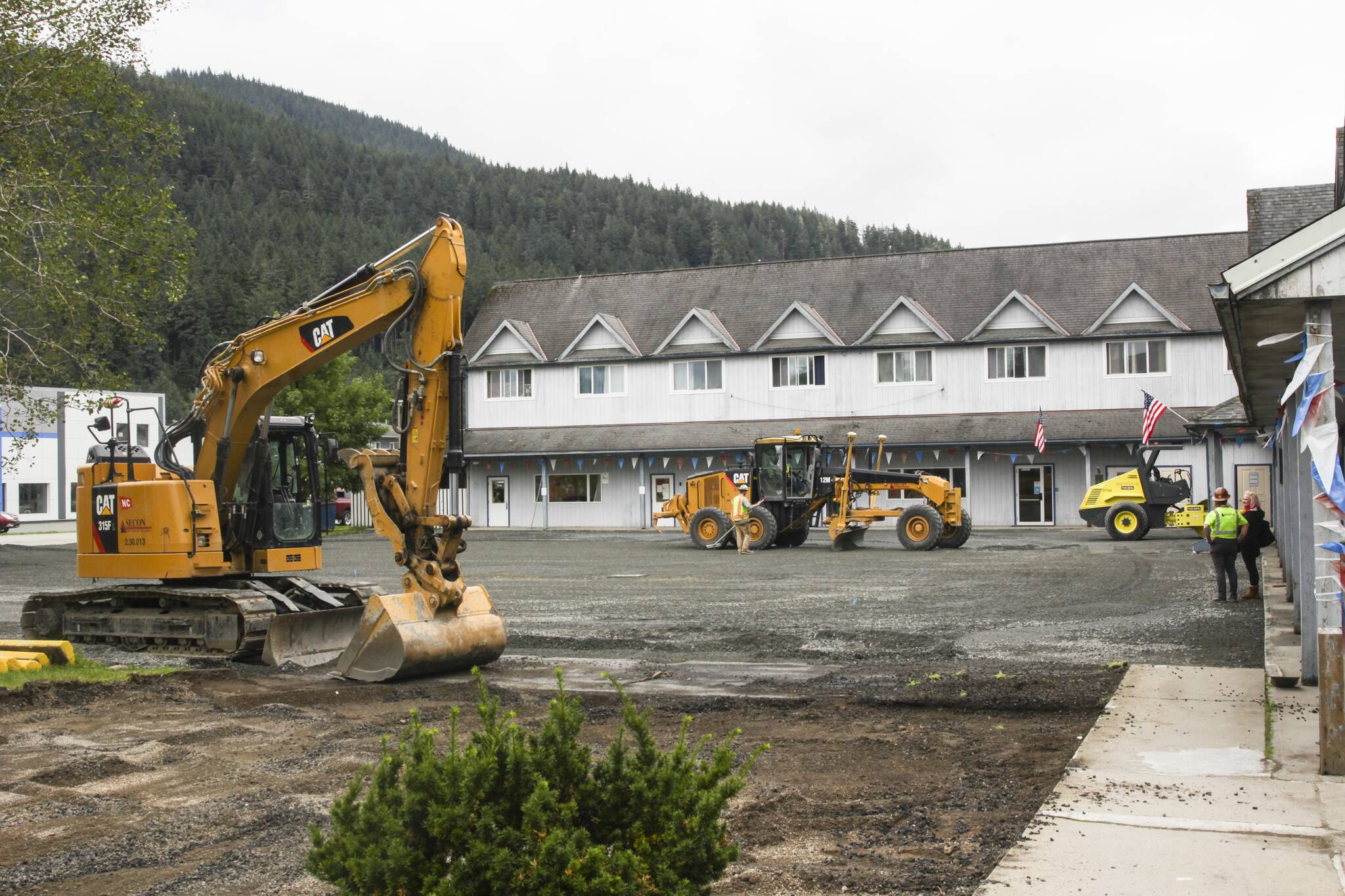Juneau’s Sobering Center has made its way home to the Dan Austin Center, moving back to its location near the airport in July after working out of Centennial Hall for nearly a year.
The service, which falls under Capital City Fire/Rescue’s Community Assistance Response and Emergency Services program, is running smoothly, said CARES manager Joe Mishler.
“Our numbers have pretty well equalized. We were initially trying to think of a way to relocate downtown because that’s where most of our calls are,” Mishler said in a phone interview. “Once the Glory Hall opened up in the valley, we noticed our pickups shifted with it.
[To the rescue: Helping birds soar again]
Calls are now split evenly between the Mendenhall Valley and downtown Juneau, Mishler said.
“It’s grown into a mutually pretty smooth operation. It’s worked out with the space we had,” said Dave Ringle, general manager of the St. Vincent De Paul Society of Juneau, which runs the Dan Austin Center, in a phone interview. “We work together to make sure each group is successful.”
The sobering center exists as a sort of middle gear, Mishler said – an option for an intoxicated person that’s better than passing out outdoors, and isn’t an ambulance trip to the emergency room.
“I’ve worked in EMS on the ambulance since 1983,” Mishler said. “What happens if someone sees someone passed out is the ambulance picks them and takes them to the ER which is often not the best place for them.”
With funding from the state aimed at pushing as much care as possible out of hospital to keep the facilities clear for more urgent cases during the pandemic, what was previously an 8 p.m.-8 a.m. duty became a 24-hour operation, with two personnel on during each 12-hour post.
“We launched it with one paramedic and we expanded it with the state having a desire to decompress the hospitals,” Mishler said.
Having two personnel on duty allows one to monitor any clients at the sobering center while the other operates the van to go retrieve pickups. The sobering center staff also try to convey someone who might not meet the criteria for staying in the sobering center to the warming shelter for the evening, Mishler said.
“Some people will call us directly. Some of the businesses will call us directly,” Mishler said. “A lot of people call 911, and they (911) call us.”
In many cases, both EMS and the sobering center will respond so they can determine what the client needs, Mishler said. Once a client is taken back to the sobering center, they get their vitals taken by the CARES personnel and are given a mat to sleep off their inebriation on.
“They’re monitored with staff,” Mishler said. “Once they’re down below a .08, we let them know where they’re at, and it’s time to be on their way. We do a final discharge set of vitals, and help them on their way. We might assist them with getting something warmer, something with more environmental protection.”
The sobering center’s location, hosted by SVDP, is helpful for this — clients can get warmer clothing from the racks there. SVDP provides the space, as well as cleaning and laundry services. It also goes the other way, with CARES helpful for providing medical assistance or answering medical-related questions if needed at SVDP, Ringle said; a mutually beneficial relationship.
“We’ve adjusted. To me, there have been very few disruptions. If nothing else, we can help out with clothing,” Ringle said. “As far as the sobering center goes, they’re just another part of life around here.”
The proximity to the Glory Hall and the Glory Hall’s new interior, which features individual bedrooms, has also helped streamline the pickup process in some cases, and reduced calls others.
“We’re down to an average of about one a night or day. We’ve had a few times where we haven’t had anybody. That’s been a new thing,” Mishler said. “I think time will tell how much this stays or where it’ll end up.”
• Contact reporter Michael S. Lockett at (757) 621-1197 or mlockett@juneauempire.com.

